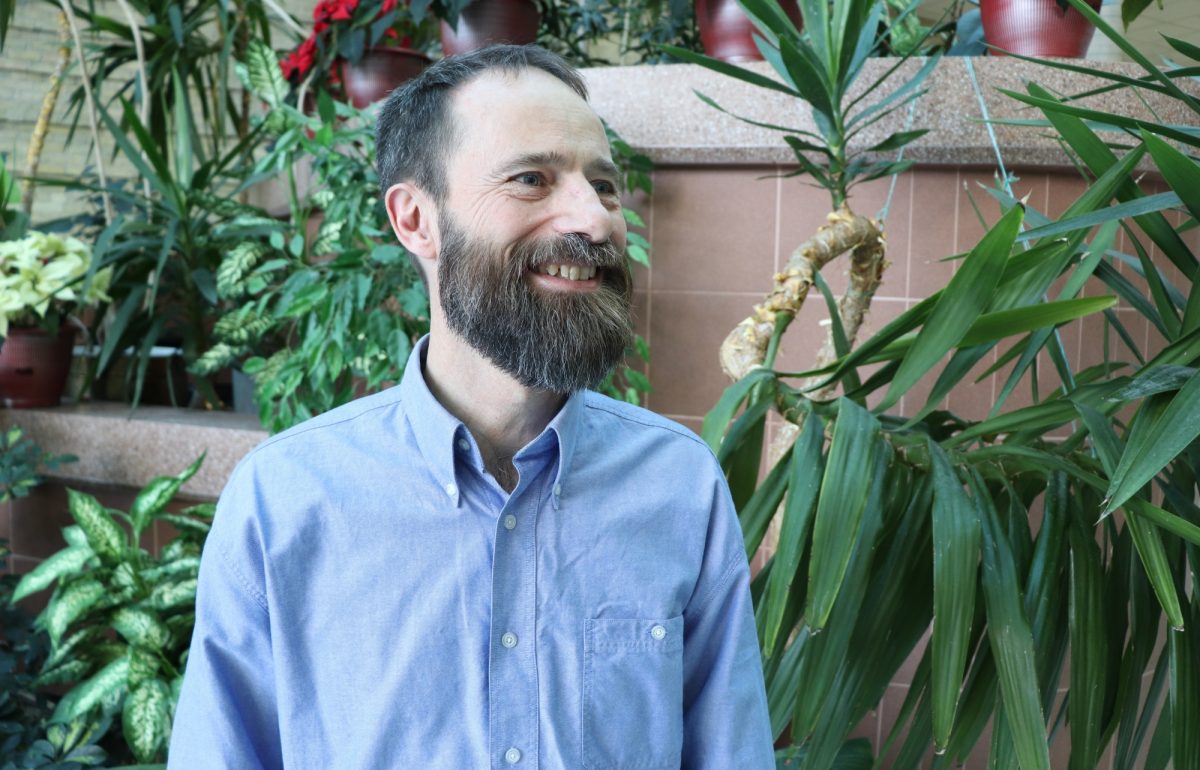
Dr. Dieter Schönwetter is the Dr. Gerald Niznick College of Dentistry’s director of student affairs and academic services.
Psychology meets dentistry
Dr. Dieter Schönwetter uses psychology background in his work in Dr. Gerald Niznick College of Dentistry
If someone had told Dr. Dieter Schönwetter when he graduated with his PhD in social psychology that one day he would be a worldwide expert in dental education, he would have shook his head in disbelief.
Schönwetter thought he’d go on to be a psychology professor after graduating with his doctorate from the University of Manitoba in 1996, but instead, he’s found a home in the Dr. Gerald Niznick College of Dentistry in the Rady Faculty of Health Sciences.
“I’ve taken psychology to a place that is different,” said Schönwetter, who has filled several roles in the college over the past 16 years. “Traditionally, I wouldn’t have thought about psychology and dentistry going together, but they do.”
Schönwetter, who became the college’s director of student affairs and academic services in January, fits in the college well. Like his dentist colleagues, he’s interested in helping people. As the son of a minister, Schönwetter wanted to follow in his father’s footsteps when it came to aiding people. That’s why he became interested in the field of psychology.
In his new role as director of student affairs and academic services, he will have plenty of opportunities to help learners and faculty members. One of the areas he will be focused on is assisting the international dental degree program students acclimatize to life in Canada.
Schönwetter joined the college in 2004 as an educational developer and then became the director for education resources and faculty development in 2007. Through hard work, and building his credibility and experience in the dental school, he rose to the position of associate dean, academic, in 2015.
“I won over trust by doing small projects, doing them very well, and getting to the point where I’ve received awards, grants and more responsibility was given to me,” said Schönwetter, who was in the role for more than three years.
Schönwetter graduated from UM with a bachelor of arts in 1987 and a master of arts in 1989. Prior to that, he earned a bachelor in theology from the Canadian Mennonite Bible College in 1984.
Before completing his master’s degree, he spent a year living with the Roma people in southwestern Germany as part of a missionary trip. He went there with a desire to help make changes in their society, however, what changed was his outlook. The Roma people helped him see how small his worldview was, and the experience rebuilt his perspective on life.
Schönwetter has drawn from his European experience to become a better leader. “While living with the Roma people, I discovered that if you want to make change it has to happen from within,” he said. “You don’t lead from the top down but from the bottom up, which means understanding the needs people have. Once you identify those, you can find people within the group to champion those ideas. You’re just providing the support and encouragement. That’s how you lead.”
In addition to his administrative roles, Schönwetter is a tenured professor in the college. In 2018, he was awarded the Association of Canadian Faculties of Dentistry National Teaching Award.
He teaches, and is in charge of, the practice management courses for first-, third- and fourth-year dental students. He instructs students on the social skills needed to run a practice, like dealing with staff and patients in a variety of situations.
“Dentists tend to be focused on using their hands and working on the tooth, so sometimes the dentist forgets about the patient behind the tooth,” he said. “So my psychology background really helps balance this out.”
Outside of the office, Schönwetter is an avid wildlife photographer. He heads into nature to escape the stresses of society and to photograph birds.
“Whenever you’re looking through a viewfinder of a camera it’s like looking through a new portal,” he said. “You have to let go of what’s around you or you’ll otherwise miss what’s in front of you. It’s very rewarding.”
He sells his photographs and calendars to raise money for the Rady Faculty’s Habitat for Humanity builds.
Schönwetter’s research focus is on effective teaching and learning. He has received more than 45 research grants, published more than 65 papers, given 15 international keynote presentations and took part in more than 190 peer-reviewed conference presentations.
A recent paper he published looked at the impact effective communication has on patients. The study found that male patients give female clinicians more positive ratings on their communication, however he said it will require further research to understand why.
Schönwetter is in demand around the world as a health education consultant. He has advised more than 30 health schools – from Australia to Qatar to the United States. Some areas he’s consulted on include course development, e-learning and curriculum mapping.
“I love these challenges,” he said. “I get to represent the University of Manitoba when I go to these different places, and I also get to take some ideas from them and bring them back here. I love that exchange. The academic life is very rewarding.”






